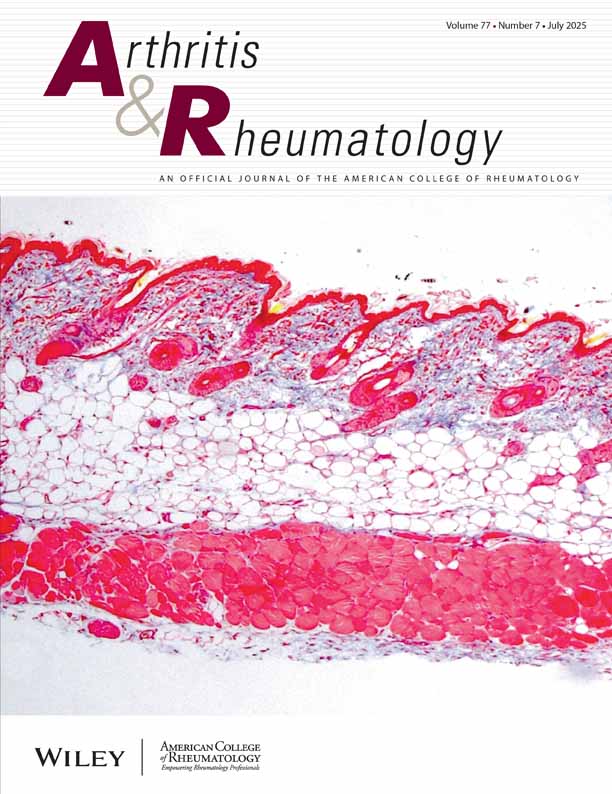Anti-20S proteasome autoantibodies inhibit proteasome stimulation by proteasome activator PA28
Abstract
Objective
The ubiquitin-proteasome system plays a central role in cellular homeostasis as well as in regulation of the inflammatory and stress responses. However, the occurrence of autoantibodies against 20S proteasome has, to date, been considered to be a nonspecific epiphenomenon in patients with autoimmune disorders. This study was undertaken to analyze the properties of antiproteasome antibodies by investigating their influence on the proteolytic activity of the proteasome complex.
Methods
The 20S proteasome, with or without addition of the proteasome activator (PA28), was preincubated with affinity-purified human antiproteasome antibodies. Proteolytic activity was estimated using fluorogenic peptides as substrate.
Results
The baseline proteolytic properties of the 20S proteasome core complex were not influenced by the autoantibodies in vitro. In contrast, all human antiproteasome antibodies analyzed efficiently blocked the enhanced proteasomal substrate cleavage provided by PA28. A similar influence of proteasome activation was observed upon preincubation with affinity-purified sheep polyclonal or mouse monoclonal antiproteasome antibody, whereas human immunoglobulin controls exhibited no effect.
Conclusion
Autoantibodies against 20S proteasomes are able to block proteasome activation by PA28, binding to their native antigen in vitro. Antibody targeting of the interaction between 20S proteasome and PA28 represents a novel mechanism of proteasome inhibition.




